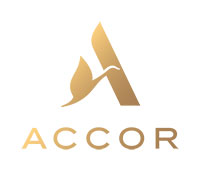
Major increase in occupancy demand in Cape Town's top end hotel sector (Afrique du Sud)
|
 |
Major increase in occupancy demand in Cape Town's top end hotel sector (Afrique du Sud)
|
Catégorie : Afrique Océan Indien - Afrique du Sud - Économie du secteur
- Chiffres et études
Ceci est un communiqué de presse sélectionné par notre comité éditorial et mis en ligne gratuitement le 15-12-2010
Last month (November 2010), Cape Town’s hotel sector experienced a phenomenal increase in occupancy levels at the very top end of the market, reports Joop Demes, CEO of Pam Golding Hospitality – a member of the Pam Golding Property group.
“Both the Cape Grace and One&Only hotels increased occupancies by over 45 percent compared to November 2009. Furthermore, the Cape Grace’s November 2010 occupancy was the highest for any month since the year 2002 – a notable achievement in an economy which is still in an early phase of recovery. Both these hotels report strong traction for the season ahead,” says Demes.
“During the past month (November 2010) both 15 on Orange and Crystal Towers traded at occupancy levels which are very respectable for hotels within their first year of trading in a competitive urban location. The Cape Royale hotel opened its doors in 2008 and traded at close to 80 percent occupancy in November 2010, barely two years after opening. While these achievements beg the question as to whether these new hotels are drawing demand from other hotels in this sector of the market, the answer is no. At the Radisson Blu hotel occupancy during this same period was in the upper 80 percent bracket – considerably ahead of November last year, while the Westin Grand had occupancy close to 80 percent and very similar to the good occupancy recorded during November 2009. All these hotels showed revenue growth this year compared to last year.”
Demes says it is of interest is that hoteliers in Cape Town – and predominantly at the top end of the market – are building demand on the back of increased inventory. “They are in fact hard at work closing the gap between supply and demand. The sales director of a large hotel group recently indicated that business had changed drastically and they, as he put it, needed to beef up their resources to pro-actively find and fetch the business as opposed to waiting for guests to make reservations.
“It is interesting to look at the supply of hotel rooms in Cape Town over the last 10 years. The 5-Star hotel sector increased its supply of rooms from 2008 rooms to 3395 rooms currently, reflecting an increase of 1387 rooms or 69 percent, while rooms in the 4-Star market increased from 3674 to 4764 rooms – an increase of 1090 rooms or 30 percent. This is seen against the backdrop of overall high occupancy levels of 72.3 percent experienced in the Cape Town hotel sector in both 2006 and 2007, coupled with a buoyant economy, and it was these factors that spurred the development of further hotel rooms in the top end of the market, not the World Cup 2010,” he says.
On the other hand, in the 3-Star hotel market the number of rooms increased only marginally from 2564 to 2696 rooms, ie only by 132 rooms or 5 percent, while surprisingly there was no increase in rooms whatsoever in the 2-Star and 1-Star market.
“This raises the view that an opportunity exists for the development of additional rooms to cater for the 1-3-Star market. The budget and economy hotel market in Cape Town has seen no new supply in the last 10 years and as a result the demand has simply been stagnating and in some instances declining. In our opinion it is the supply that will grow demand in a destination, with the proviso that the destination is quality, and remains so. To illustrate this consider the fact that Sol Kerzner built Sun City in the middle of nowhere – it was not the area that showed demand; it was quality supply which created the demand,” says Demes.
“Given the above statistics I estimate that the demand for 5-Star rooms in Cape Town in the month of November 2010 grew by at least 17 000 bed-nights compared to November 2009. It also clearly illustrates the point that the increased supply of quality accommodation has led the demand and continues to increase demand as long as the destination is good and appealing.”
Demes says the weakening of the dollar, the pound and now the euro against the rand is concerning for those hoteliers in Cape Town who are much more dependent on international business compared to, for instance, Gauteng and Durban, and this will continue to place pressure on hotel rates.
“It’s true that a gap between supply and demand in any hotel market in the world results in specials. Cape Town is no exception and the good news this season for South Africans and neighbouring countries is that there are some really exciting offers here from luxury 5-Star down to economy hotels. However, one is advised to make good use of this opportunity as it may well be a different story towards the end of 2011,” he says.
“The season ahead is by no means showing 100 percent occupancy, but is however looking substantially better overall when compared to the same period last year – despite the increased inventory. In my opinion, the trend of increasing demand will therefore continue, and directly as a result of the fantastic Soccer World Cup 2010 which was hosted by South Africa. Demand is building in Cape Town and particularly at the 5-Star level where we have seen inventory increase by 51 percent since 2007,” adds Demes.
|
|






